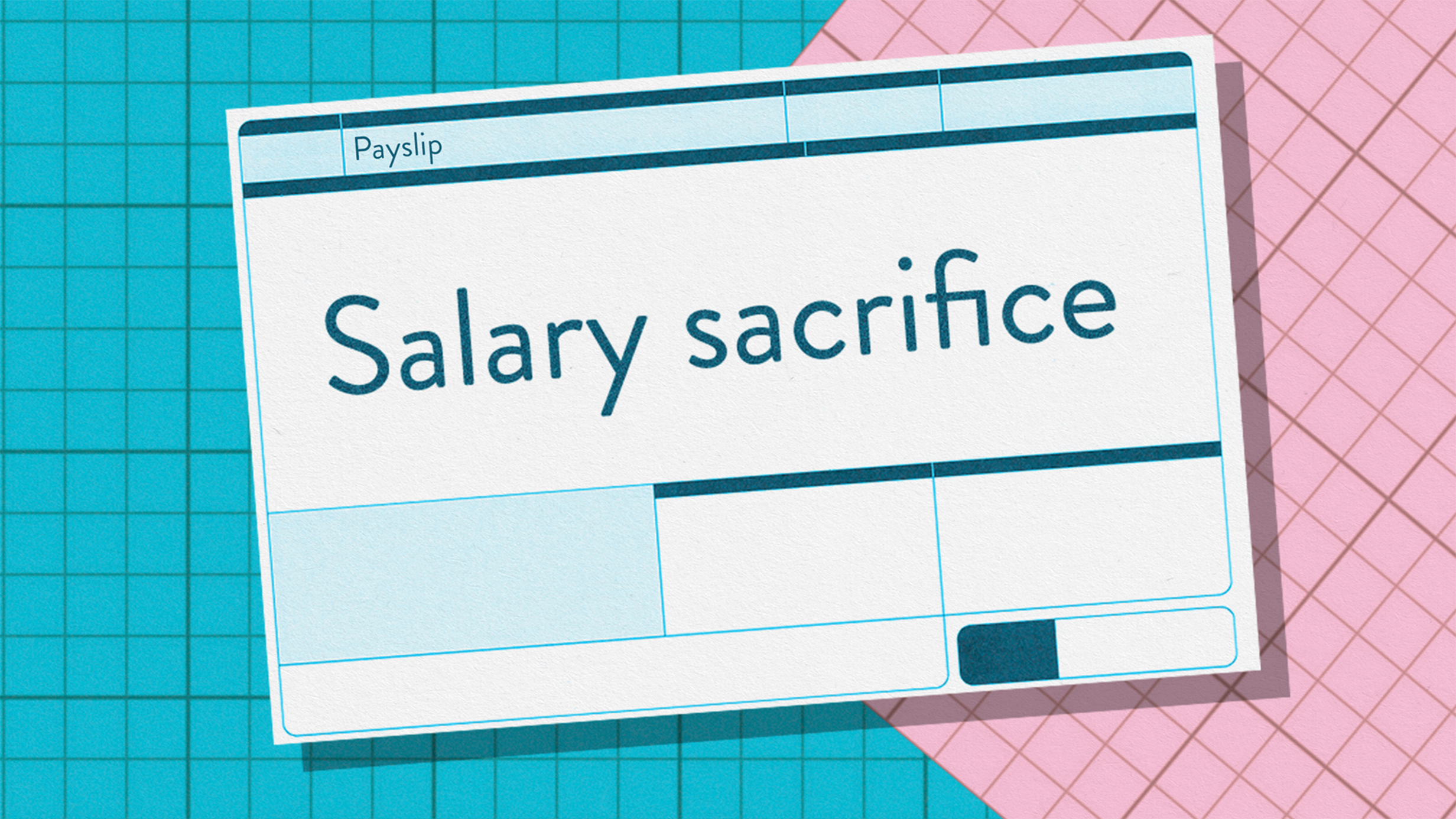Salary Sacrifice explained
A 5 minute read

When you put money into your pension, it comes out of your salary. There are a couple of ways to do this, with one of the more tax efficient ways being through ‘salary sacrifice’ - some employers might also call it salary exchange.
It goes a little something like this.
You and your employer will agree to reduce your ‘before tax’ (gross) salary, and your employer will then pay the difference into your pension, along with their contribution to your pension.
You decide upon a percentage of your salary or a fixed figure to contribute to your pension every month, or when making a single payment, perhaps from a bonus. If you choose a percentage of your salary, then your contribution will rise in line with any salary increases you get down the line.
The big benefit of salary sacrifice is that your before tax salary is lowered. It sounds backwards in coming forwards, but it does exactly what it says on the tin. Salary sacrifice means you could pay less income tax and less National Insurance because you don’t see as much income ‘on paper’. This also means, you can choose to use this saving to either increase the total paid into your pension, or to increase your take-home pay.
Employers save on National Insurance too, and some may even add their National Insurance savings into your workplace pension as well - giving your pot a helpful boost.
Let’s take a closer look at how salary sacrifice works. The first example shows how an employee’s pension contribution is calculated without using the salary sacrifice method:
- Hannah has a salary of £40k a year and contributes 5% into her pension = £2,000
- Her employer contributes 3% into her pension = £1,200
- The total pension contribution = £3,200
- Her take-home pay (after deductions) is £29,622.40
- The total cost to her employer including National Insurance Contributions is £45,464.20
If Hannah were to take the salary sacrifice option and chooses to increase her pension and keep her take-home pay the same, her pay would look like this:
- Hannah sacrifices some of her salary, making her gross (before tax) salary now: £37,647.03
- Hannah is no longer making a direct personal pension contribution, but her employer’s contribution is increased accordingly. The savings made from lower employer and employee NICs are also added into the pension contribution.
- The total contribution to Hannah’s pension increases to £3,877.65
- Her take-home pay (after deductions) remains the same at £29,622.40
- The cost to her employer remains the same at £45,464.20
As another option, Hannah could take salary sacrifice and choose to maintain the same pension contribution but increase her take-home pay:
- Hannah sacrifices some of her salary, making her gross salary now £38,000
- Hannah is no longer making a direct personal pension contribution, but her employer’s contribution is increased accordingly. The savings made from Hannah’s lower NICs are added to her take-home pay.
- The total contribution to Hannah’s pension is £3,200
- Her take-home pay (after deductions) increases to £29,862.40
- The cost to her employer reduces to £45,188
*Figures not suitable for use for Scottish taxpayers. The value of the reduction in tax and National Insurance will depend on an individual’s circumstances. Figures calculated using Aegon’s individual and bulk calculators.
So, is salary sacrifice worth it?
Salary sacrifice is a great saving scheme which means you’ll benefit from keeping hold of more of your earnings and paying less tax.
Are there any drawbacks?
You can’t use salary sacrifice if this would result in your pay falling below the national minimum wage.
There can also be an impact on salary-based benefits and your ability to borrow money. Again, this is because salary sacrifice leads to a lower overall income. For example, it could have a knock-on effect on the following:
- Life insurance
- Mortgage borrowing
- Credit card borrowing limits
- The State Pension
- Any benefits such as Statutory Maternity, Paternity, Sick
Pay, Working Tax Credit/Child Tax Credit
If you’re unsure about where salary sacrifice leaves you, then it’s always a good idea to speak to your employer - you never know what treasure trove of information you might dig up to really bolster your budget. And remember, you don’t have to take part in salary sacrifice if you don’t want to.
Retirement saving should feel accessible and secure to everyone - so rest assured that there is a way to save without leaving your monthly budget out to dry.
DO NOT EDIT THIS BOX UNLESS YOU'RE NOEL

